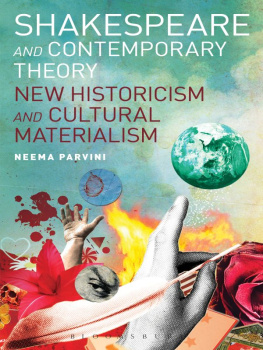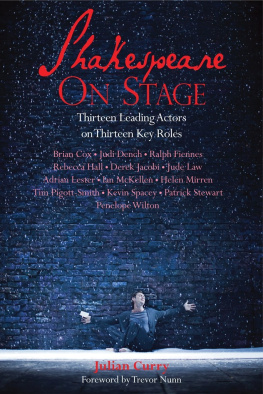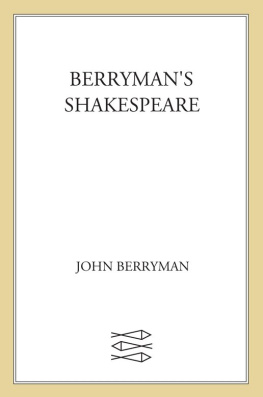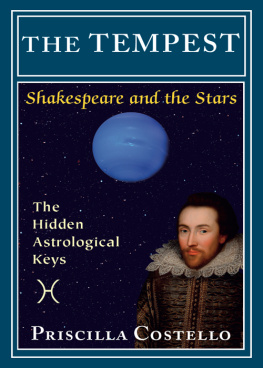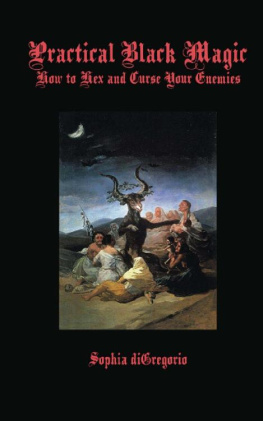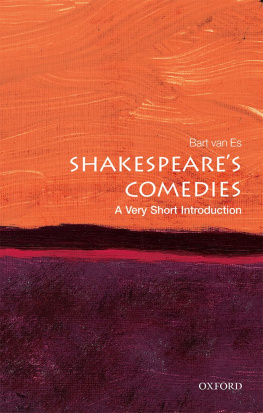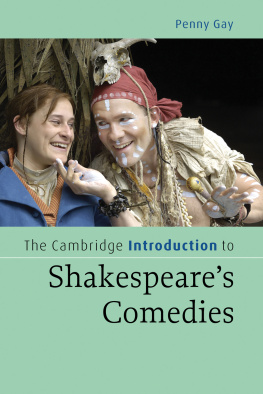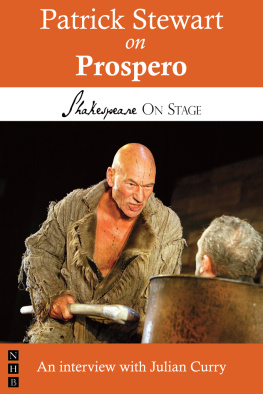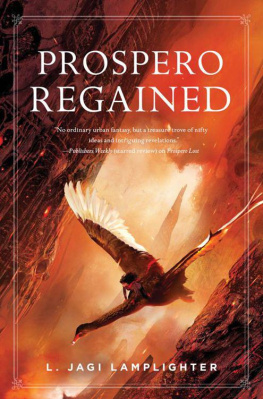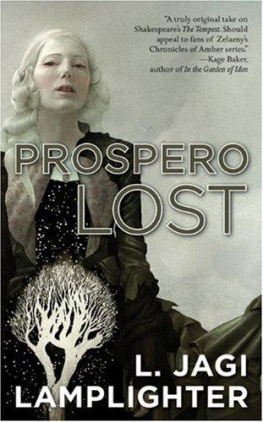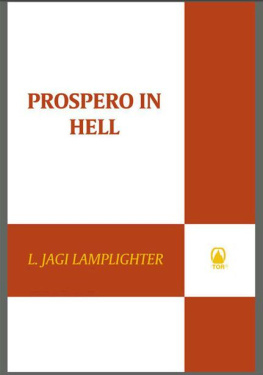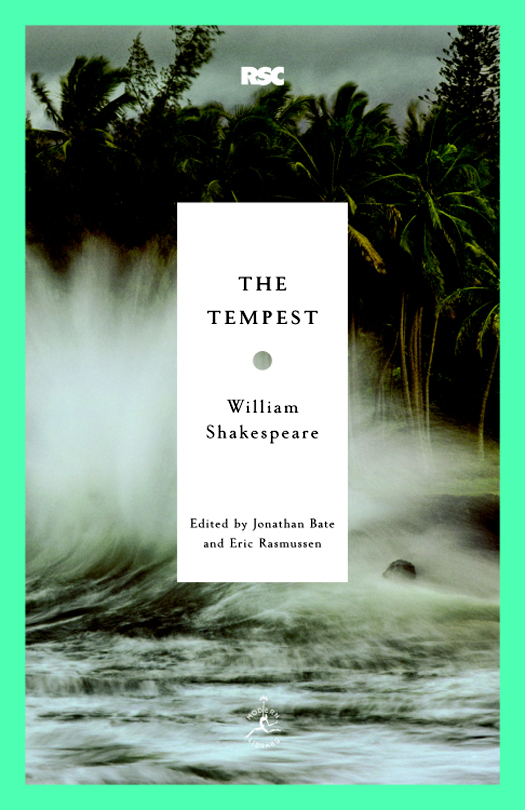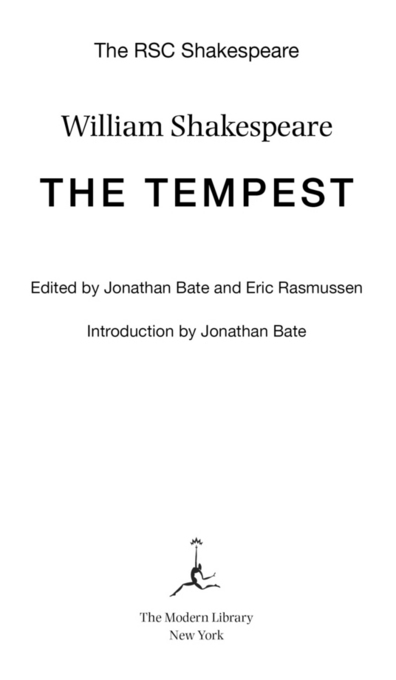The RSC Shakespeare Edited by Jonathan Bate and Eric Rasmussen
Chief Associate Editor: Hlose Snchal
Associate Editors: Trey Jansen, Eleanor Lowe, Lucy Munro, Dee Anna Phares, Jan Sewell
The Tempest Textual editing: Eric Rasmussen
Introduction and Shakespeares Career in the Theater: Jonathan Bate
Commentary: Charlotte Scott and Hlose Snchal
Scene-by-Scene Analysis: Jan Sewell
In Performance: Karin Brown (RSC stagings) and Jan Sewell (overview)
The Directors Cut (interviews by Jonathan Bate and Kevin Wright):
Peter Brook, Sam Mendes, and Rupert Goold
Editorial Advisory Board Gregory Doran, Chief Associate Artistic Director,
Royal Shakespeare Company
Jim Davis, Professor of Theatre Studies, University of Warwick, UK
Charles Edelman, Senior Lecturer, Edith Cowan University,
Western Australia
Lukas Erne, Professor of Modern English Literature,
Universit de Genve, Switzerland
Maria Evans, Director of Education, Royal Shakespeare Company
Akiko Kusunoki, Tokyo Womans Christian University, Japan
Ron Rosenbaum, author and journalist, New York, USA
James Shapiro, Professor of English and Comparative Literature,
Columbia University, USA
Tiffany Stern, Fellow and Tutor in English, University of Oxford, UK
2008 Modern Library Paperback Edition Copyright 2008 by The Royal Shakespeare Company All rights reserved. Published in the United States by Modern Library, an imprint of
The Random House Publishing Group, a division of
Random House, Inc., New York. M ODERN L IBRARY and the T ORCHBEARER Design are registered trademarks
of Random House, Inc. Royal Shakespeare Company, RSC, and the RSC logo are trademarks
or registered trademarks of The Royal Shakespeare Company. eISBN: 978-1-58836-827-0 www.modernlibrary.com v3.1
CONTENTS
INTRODUCTION
The Tempest was almost certainly Shakespeares last solo-authored play. We do not, however, know whether he anticipated that this would be the case.
It was also the first play to be printed in the First Folio of his collected works. Again, we do not know whether it was given pride of place because the editors of the Folio regarded it as a showpiecethe summation of the masters artor for the more mundane reason that they had a clean copy in the clear hand of the scribe Ralph Crane, which would have given the compositors a relatively easy start as they set to work on the mammoth task of typesetting nearly a million words of Shakespeare. Whether it found its position by chance or design, The Tempests place at the end of Shakespeares career and the beginning of his collected works has profoundly shaped responses to the play ever since the early nineteenth century. It has come to be regarded as the touchstone of Shakespearean interpretation. Most of Shakespeares plays have twenty or more scenes, at least as many roles, several different plot lines and a variety of imaginary locations. In some, the action takes place across a wide gap of time.
In comparison, The Tempest is extremely simple: it only has nine scenes and a dozen speaking parts of substance. Miranda is the only female role, though Ariel would have provided a showcase for a boy actor who could sing. After the short opening scene representing a ship struggling in a storm, all the remaining action takes place on Prosperos island. A series of very precise references to the timing of Ariels release from his servitude suggests that the action takes place almost in real time, during a few hours on a single afternoon. For the first time since The Comedy of Errors, written nearly two decades earlier, Shakespeare conforms to the neoclassical unities, the idea that a well-made play should have a single focus of time, place, and action.
MASTERY AND RULE
The narrative is concentrated on questions of mastery and rule.
During the tempest in the opening scene, the normal social order is out of joint: the boatswain commands the courtiers in the knowledge that the roaring waves care nothing for the name of king. Then the back story, unfolded at length in Act 1 Scene 2, tells of conspirators who do not respect the title of duke: we learn of Prosperos loss of power in Milan and the compensatory command he has gained over Ariel and Caliban on the island. The Ferdinand and Miranda love-knot is directed toward the future government of Milan and Naples. There is further politic plotting: Sebastian and Antonios plan to murder King Alonso and good Gonzalo, the madcap scheme of the base-born characters to overthrow Prospero and make drunken butler Stephano king of the island. The theatrical coups performed by Prospero, assisted by Ariel and the other spirits of the islandthe freezing of the conspirators, the harpy and the vanishing banquet, the masque of goddesses and agricultural workers, the revelation of the lovers playing at chessall serve the purpose of requiting the sins of the past, restoring order in the present and preparing for a harmonious future. Once the work is done, Ariel is released (with a pang) and Prospero is ready to prepare his own spirit for death.
Even Caliban will seek for grace. But Shakespeare never keeps it simple. Prosperos main aim in conjuring up the storm and bringing the court to the island is to force his usurping brother Antonio into repentance. Yet when the climactic confrontation comes, Antonio does not say a word in reply to Prosperos combination of forgiveness and demand (I do forgive / Thy rankest faultall of themand require / My dukedom of thee, which perforce I know / Thou must restore). He wholly fails to follow the good example set by Alonso a few lines before (Thy dukedom I resign, and do entreat / Thou pardon me my wrongs). As for Antonios sidekick Sebastian, he has the temerity to ascribe Prosperos magical foresight to demonic influence (The devil speaks in him!).
For all the powers at Prosperos command, there is no way of predicting or controlling human nature. A conscience cannot be created where there is none. By this time, Prospero has broken his staff. Ariels key words in the speech that prompts the master to renounce his magichis powerare were I human (5.1.23). The fact that a nonhuman spirit has shown a touch, a feeling for the afflictions of Prosperos enemies reveals to him that his own humanity requires him to forgive instead of revenge.
PROSPEROS POTENT ART
In Shakespeares time, the essence of humanism was the idea of art.
PROSPEROS POTENT ART
In Shakespeares time, the essence of humanism was the idea of art.
To be human was to stand above the rest of nature by means of the arts of rational debate, eloquent speech, and ethical responsibility. Humanism was above all an educational project that aimed to inculcate civic virtue: through reading and literary composition, through history, through the liberal arts, young men could be trained as public servants and loyal subjects. This is the main reason why there was a vigorous debate about the theater in the period: the drama, with its ancient Greek and Roman precedents, had a venerable humanist pedigree, but the public stage was a less malleable arena than the university, and the theater-going audience represented a more mixed and unruly clientele than the boys regimented in Elizabethan grammar schools. The fact that Prospero persistently uses theater as an educational device suggests that



